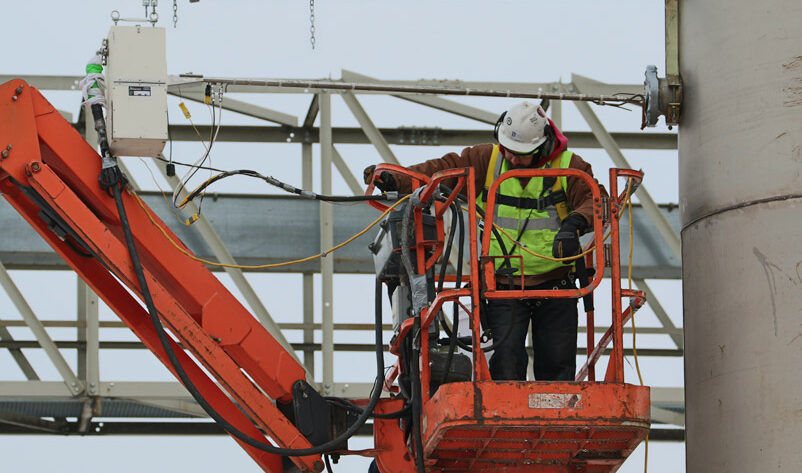Refinery Emission Monitoring Test
The Refinery Emission Monitoring Test is a critical service that ensures compliance with environmental regulations and improves operational efficiency in the oil and gas sector. This test monitors emissions from refineries to ensure they are within acceptable limits set by international standards such as ISO, ASTM, EN, IEC, and EPA.
Refineries process crude oil into various petroleum products, a process that generates significant amounts of volatile organic compounds (VOCs), nitrogen oxides (NOx), sulfur dioxide (SO2), and other pollutants. Accurate emission monitoring is essential to minimize environmental impact and ensure the safety of personnel and the public.
At Eurolab, our experienced team uses state-of-the-art equipment to conduct this test. We employ advanced gas chromatography-mass spectrometry (GC-MS) systems for precise measurement and analysis. Our testing protocols are designed to meet the stringent requirements set by regulatory bodies such as the Environmental Protection Agency (EPA).
The first step in conducting a refinery emission monitoring test involves collecting samples from various points within the refinery. These samples are analyzed using high-resolution mass spectrometry to identify and quantify emissions. The data obtained is then compared against established standards and guidelines.
Our testing service includes the following key components:
- Sampling of exhaust gases at specific locations in the refinery
- Analysis of VOCs, NOx, SO2, and other pollutants using GC-MS
- Data analysis and reporting against relevant standards
- Identification of potential sources of emissions for mitigation strategies
The results of the test are provided in a comprehensive report that includes detailed emission profiles and recommendations for reducing non-compliant emissions. This data is crucial for refineries to ensure they meet environmental regulations and improve their operational processes.
| Emission Type | Application |
|---|---|
| VOCs | Monitoring of hydrocarbon emissions during refining operations |
| NOx | Detection and quantification of nitrogen oxides in exhaust gases |
| Sulfur Dioxide (SO2) | Evaluation of sulfur content in refinery byproducts |
| Ozone Depleting Substances (ODS) | Monitoring for compliance with Montreal Protocol regulations |
The Refinery Emission Monitoring Test plays a vital role in ensuring that refineries comply with environmental regulations and operate sustainably. By identifying and quantifying emissions, this test helps refineries take proactive measures to reduce their environmental footprint.
Our team of experts is dedicated to providing accurate and reliable testing services. We use the latest technology and adhere strictly to international standards to ensure our tests are credible and repeatable. Our clients can trust Eurolab for comprehensive emission monitoring that supports regulatory compliance and operational excellence.
Benefits
The Refinery Emission Monitoring Test offers numerous benefits, including:
- Regulatory Compliance: Ensures adherence to environmental regulations set by international bodies such as ISO, ASTM, EN, IEC, and EPA.
- Operational Efficiency: Identifies inefficiencies in the refining process that can lead to increased emissions and operational costs.
- Risk Mitigation: Early detection of potential environmental risks allows for timely mitigation strategies to be implemented.
- Data-Driven Decision Making: Provides detailed emission profiles that inform decision-making processes related to process optimization and pollution control.
In addition, the test helps refineries maintain a positive public image by demonstrating their commitment to environmental responsibility. It also supports the development of cleaner technologies and practices within the industry.
Industry Applications
| Emission Type | Description |
|---|---|
| VOCs | Measurement of volatile organic compounds in exhaust gases to ensure compliance with emission limits set by regulatory bodies. |
| NOx | Detection and quantification of nitrogen oxides in refinery emissions, critical for meeting NOx regulations. |
| Sulfur Dioxide (SO2) | Evaluation of sulfur content in refinery byproducts to ensure compliance with SO2 emission limits. |
| Ozone Depleting Substances (ODS) | Monitoring for compliance with regulations aimed at reducing the impact on the ozone layer. |
The Refinery Emission Monitoring Test is applicable across various refinery operations, including:
- Crude oil distillation
- Petrochemical processing
- Hydrocarbon conversion
- Emissions control systems evaluation
This test ensures that refineries are meeting the stringent requirements set by environmental regulations, thereby contributing to a more sustainable and cleaner energy sector.
Eurolab Advantages
At Eurolab, we offer unparalleled expertise in refinery emission monitoring. Our advantages include:
- Comprehensive Testing Capabilities: We provide a full range of testing services tailored to the unique needs of refineries.
- State-of-the-Art Equipment: Equipped with advanced GC-MS systems for precise and reliable emission analysis.
- Experienced Professionals: Our team consists of highly skilled professionals who are familiar with the latest testing protocols and standards.
- Comprehensive Reporting: We provide detailed reports that include not only the test results but also recommendations for reducing non-compliant emissions.
Beyond our technical expertise, Eurolab is committed to providing exceptional customer service. Our clients can rely on us to deliver accurate and timely testing services that support their compliance efforts and operational goals.





